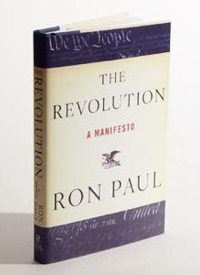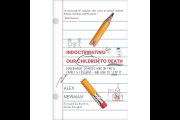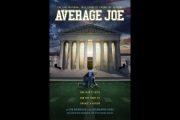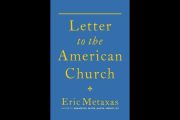
Every now and then a book changes the course of human history. Such were the political writings of the American founding era — the pamphlets of Thomas Paine, the Federalist Papers, and Adam Smith’s Wealth of Nations prominent among them. The history of political freedom has been singularly blessed with epochal writings, from the musings of Cicero to 20th-century luminaries like Hazlitt, Mises, Nock, Garrett, and Flynn. Recent years, however, have seen few political statements as pithy and readable as The Law or as tightly reasoned and erudite as Human Action.
Congressman Ron Paul’s new book The Revolution: A Manifesto changes all that. Here is an elegant summary of both the philosophy and the praxis of limited government, neatly encapsulated in seven brief, masterly written chapters. The Revolution is one of those rare books that dares to tackle issues usually regarded as dauntingly complex (monetary policy in particular) and manages to render them in language both comprehensible and enjoyable to read. Nor is there a trace of the demagogy that so often passes itself off as good political prose, in this as in most other eras. The Revolution is not a rant but an impassioned appeal. It is Dr. Paul at his principled, gentlemanly, scholarly best.
After an introductory chapter on false choices and how the terms of modern political discourse typically exclude the crucial option of freedom, Dr. Paul tackles one of the topics for which he is best known and also most controversial: foreign policy. His language, as befits the subject matter, is diplomatic but to the point. In just 30 pages, Ron Paul gives an overview of foreign-policy issues that leaves no doubt as to the wisdom of the noninterventionist policy of the Founders. Here is a summary of American foreign-policy history, along with a brief but thorough discussion of just-war theory. Here also is a timely demolishing of the conceits that brought about the undeclared and illegitimate wars on terrorism and against Iraq, including a luminous rebuttal of those who have used Dr. Paul’s criticism of the reaction to 9/11 as an excuse to marginalize him. Who, after reading The Revolution with an open mind, could fail to reach the same ineluctable conclusions as Dr. Paul, namely, that American meddling in the Middle East has provided a strong incentive for terrorists to target the United States?
Following foreign policy, Dr. Paul devotes an entire chapter to that oft-maligned, almost universally misunderstood document, the U.S. Constitution. Here many of the most important principles of constitutional federalism are explained, including the separation between presidential and congressional war powers. Concerning the latter, Dr. Paul recounts a discussion in the House prior to the outbreak of the Iraq War, in which the then-chairman of the International Relations Committee (the late Henry Hyde, though Dr. Paul is too decorous to mention him by name) chided Ron Paul for insisting on a congressional declaration of war. “There are things in the Constitution that have been overtaken by events, by time,” the Republican congressman, who was once viewed as a champion of conservatism in the House, told Dr. Paul. “Declaration of war is one of them. There are things no longer relevant to a modern society. We are saying to the president, use your judgment. [What you have proposed is] anachronistic; it isn’t done any more.” Congressman Hyde’s statement is emblematic of the vast ideological gulf between those few souls in Washington who, like Dr. Paul, actually honor the Constitution and the vast majority who don’t.
Prominent also in Dr. Paul’s discussion of the Constitution is the bedrock principle of federalism. Nowhere in the Constitution are limitations on power more clearly delineated than in the Tenth Amendment, which reserves all powers not delegated to the federal government to the several states or to the people themselves. Yet no principle of the Constitution has been more systematically ignored or misconstructed than this one, almost from the inception of the republic. From at least the election of Andrew Jackson onward, the federal government has steadily accumulated power at the expense of the states, with major wars and economic crises along the way hastening the process. Dr. Paul points out that, regardless of almost two centuries of abusive precedent, the Tenth Amendment has not been repealed nor the principle of federalism successfully repudiated. No matter how much the opponents of federalism argue the point, the fact remains that the Founders did not intend for the American presidency to become an elective monarchy, nor the federal government to become the master of supine state legislatures.
Other chapters lay out Dr. Paul’s philosophy on economic freedom and personal liberty, seamlessly wedding the historical (Prohibition, for example) with the contemporary (the misnamed war on drugs). Especially commendable is a late chapter on the “forbidden issue in American politics,” money, which is really an explanation of what the Federal Reserve does (and doesn’t do) and why a paper money system is at variance with the policy of the Founding Fathers. Here is as concise and readable an account as you will ever find of how complex central banking isn’t. The operations of the Federal Reserve, shorn of numinous banker’s terminology, amount to a counterfeiting racket. The more paper money the Fed prints, the more the dollar’s value declines. Try printing your own money supply in your basement, and you’ll earn a prison sentence. Do essentially the same as Fed chairman, and earn the plaudits of a swooning financial press and a servile Congress. The beguiled public, meanwhile, pays the price for Fed policies in the form of economic crises, like the ongoing mortgage debacle and the steady devaluation of savings.
Congressman Paul, despite his years of being Capitol Hill’s oft-derided “Dr. No” because of his consistent voting record against unconstitutional legislation, is an optimist at heart. He recognizes that people, in the main, do not prefer bondage to freedom, despite the direction of our country or the statist politicians people vote into office. A majority of Americans, contrary to what historians have been telling us, did support the American Revolution, as Dr. Paul comments in a late footnote. Regarding our time, Dr. Paul insists that “liberty is not given a fair chance in our society, neither in the media, nor in politics, nor (especially) in education. I have spoken to many young people during my career, some of whom had never heard my ideas before. But as soon as I explained the philosophy of liberty and told them a little American history in light of that philosophy, their eyes lit up…. We are engaged in a great battle of ideas, and the choices before us could not be clearer.”
Fair enough. But a good manifesto needs to have a plan of action, not merely a statement of beliefs. And here Dr. Paul also delivers, albeit with a program that will leave the politically ambitious with the vapors. We must begin allowing people to opt out of Social Security, as a prelude to phasing out the program altogether. All cabinet budgets must be frozen immediately, and extra-constitutional departments, like the Department of Education, must be terminated. Monetary freedom, specifically, the freedom to transact business in gold and silver, should also be restored, allowing people to choose between precious metals and paper money in their business. It is not hard to see that such a step would make the elimination of the Federal Reserve much easier.
In foreign policy, Dr. Paul enjoins the recall of U.S. troops serving abroad and he makes the case that following the Golden Rule in international affairs is a much surer route to peace and stability than aggressive war.
Ultimately, Dr. Paul’s book is not so much about freedom but about consequences — what will surely come to pass if we continue to abuse our Constitution, reject free-market principles, and wage war across the globe under the spurious banner of democracy. One way or another, the militarism, the squelching of personal liberty, the “robbing selected Peter to pay for collective Paul,” in Kipling’s unforgettable phraseology, must come to an end, as inevitably as night follows day. From our mad careen toward insolvency and national humiliation we can either withdraw voluntarily or wait until the inexorable laws of economics and history force our hand. “I know which option I prefer,” Dr. Paul says in his concluding remarks. “Ours is not a fated existence, for nowhere is our destiny etched in stone…. If freedom is what we want, it is ours for the taking.”
Here’s hoping that Americans choose ultimately to stand with the Constitution — with freedom! We are yet a long way from the successful revolution on behalf of freedom that Ron Paul envisions, but this book is a very fine start.



